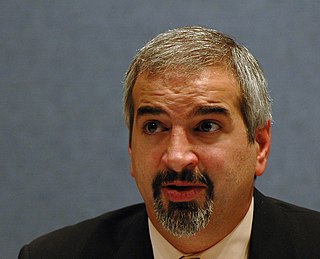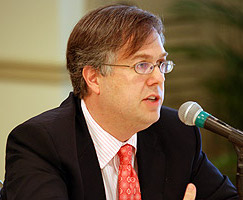A Quote by Joe Biden
The average voter out there understands that the next president is going to have to be prepared to immediately step in without hesitation and end our involvement in Iraq. It's very difficult to figure out how to move on to broader foreign policy concerns without fixing Iraq first.
Related Quotes
I think, while it is true that the Hillary Clinton and I voted differently on the war in Iraq, what is important is that we learn the lesson of the war in Iraq. And that lesson is intrinsic to my foreign policy if elected president, is the United States cannot do it alone. We cannot be the policeman of the world. We are now spending more I believe than the next eight countries on defense. We have got to work in strong coalition with the major powers of the world and with those Muslim countries that are prepared to stand up and take on terrorism.
There is some of the paradox of foreign policy polling. So on Iraq and Syria, the President is pretty much doing what Americans want, he's not very engaged, but they don't like the results, his polling numbers are going down. Americans may be ambivalent and disengaged with the world, they don't want a President who is ambivalent and disengaged with the world.
What is the value of having millions of people in Iraq not having a repressive regime? What is the value of having the Iraqi regime not shooting at UK and US aircraft almost every day? What is the value of the Iraqis having a free press? What is the value of the foreign minister of Iraq going to Paris, calling for an end of the Gadhafi regime and citing Iraq as a model, as an example, that in fact a freer political system can exist in that part of the world?

































